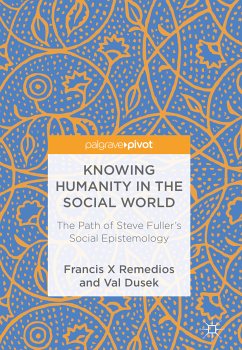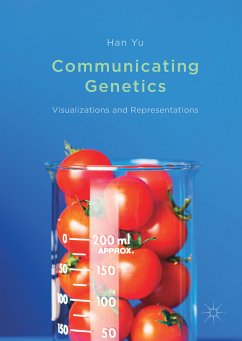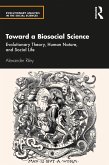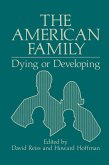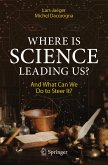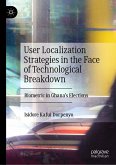This comprehensive handbook synthesizes the often-fractured relationship between the study of biology and the study of society. Bringing together a compelling array of interdisciplinary contributions, the authors demonstrate how nuanced attention to both the biological and social sciences opens up novel perspectives upon some of the most significant sociological, anthropological, philosophical and biological questions of our era.
The six sections cover topics ranging from genomics and epigenetics, to neuroscience and psychology to social epidemiology and medicine. The authors collaboratively present state-of-the-art research and perspectives in some of the most intriguing areas of what can be called biosocial and biocultural approaches, demonstrating how quickly we are moving beyond the acrimonious debates that characterized the border between biology and society for most of the twentieth century.
This landmark volume will be an extremely valuable resource for scholars and practitioners in all areas of the social and biological sciences.
The chapter 'Ten Theses on the Subject of Biology and Politics: Conceptual, Methodological, and Biopolitical Considerations' is open access under a CC BY 4.0 license via link.springer.com.
Versions of the chapters 'The Transcendence of the Social', 'Scrutinizing the Epigenetics Revolution', 'Species of Biocapital, 2008, and Speciating Biocapital, 2017' and 'Experimental Entanglements: Social Science and Neuroscience Beyond Interdisciplinarity' are available open access via third parties. For further information please see license information in the chapters or on link.springer.com.
Dieser Download kann aus rechtlichen Gründen nur mit Rechnungsadresse in A, B, BG, CY, CZ, D, DK, EW, E, FIN, F, GR, HR, H, IRL, I, LT, L, LR, M, NL, PL, P, R, S, SLO, SK ausgeliefert werden.
Produktdetails
- Verlag: Palgrave Macmillan UK
- Seitenzahl: 941
- Erscheinungstermin: 27. Oktober 2017
- Englisch
- ISBN-13: 9781137528797
- Artikelnr.: 52937022
- Verlag: Palgrave Macmillan UK
- Seitenzahl: 941
- Erscheinungstermin: 27. Oktober 2017
- Englisch
- ISBN-13: 9781137528797
- Artikelnr.: 52937022
Die Herstellerinformationen sind derzeit nicht verfügbar.
Maurizio Meloni is a social theorist and a STS scholar at the University of Sheffield, UK. He is the author of Political Biology , the upcoming A Postgenomic Body and co-editor of Biosocial Matters . John Cromby is a psychologist at the University of Leicester, UK. He is a co-author of Psychology, Mental Health and Distress and author of Feeling Bodies: Embodying Psychology . Des Fitzgerald is a sociologist and STS scholar at Cardiff University, UK. He is author of T racing Autism: Uncertainty, Ambiguity and the Affective Labor of Neuroscience and co-author of Re thinking Interdisciplinarity Across the Social Sciences and Neurosciences . Stephanie Lloyd is a medical anthropologist at the Université Laval, Canada. Her research examines the production of molecular models that attempt to link early experiences to specific behaviours and traits,with a particular focus on epigenetics and neurosciences.
INTRODUCTION BY THE EDITORS. Introducing the New Biosocial Landscape; Meloni, Cromby, Fitzgerald, and Lloyd.- SECTION I: History of the Biology/Society Relationship.- Chapter 1.Models, Metaphors, Lamarckisms and the Emergence of 'Scientific Sociology'; Snait Gissis.- Chapter 2.The transcendence of the social: Durkheim, Weismann and the Purification of Sociology; Maurizio Meloni.- Chapter 3. Biology, Social Science, and Population in Late Nineteenth- and Early Twentieth-Century Britain; Chris Renwick.- Chapter 4. The concept of plasticity in the history of the nature-nurture debate in the early 20th century; Antonine Nicoglou.- Chapter 5. An Evolving, Evolutionary Science of Human Differences; Jonathan Marks.- Chapter 6. Experimenting in the Biosocial: The Strange Case of Twin Research; Will Viney.- Chapter 7. Histories and meanings of Epigenetics; Tatjana Buklijas.- SECTION II. Genomics, Postgenomics, Epigenetics and Society.- Chapter 8. Scrutinizing the Epigenetics Revolution; Maurizio Meloni and Giuseppe Testa,.- Chapter 9. Social & Behavioral Epigenetics: Evolving Perspectives on Nature-Nurture Interplay, Plasticity, and Inheritance; Frances Champagne.- Chapter 10. Molecular Multicultures; Amy Hinterberger.- Chapter 11. The First Thousand Days: Epigenetics in the Age of Global Health; Michelle Pentecost.- Chapter 12. Genetics, epigenetics and social justice in education: learning as a complex biosocial phenomenon; Deborah Youdell.- Chapter 13. Genetics, epigenetics and social justice in education: learning as a complex biosocial phenomenon; Sabina Leonelli.- SECTION III. Neuroscience: brain, culture and social relations.- Chapter 14. Proposal for a Critical Neuroscience; Jan Slaby and Suparna Choudhury.- Chapter 15. On the Neurodisciplines of Culture; Fernando Vidal and Francisco Ortega.- Chapter 16. Affective Neuroscience as Sociological Inquiry?; - Christian Von Scheve.- Chapter 17. Mechanisms of Embodiment in Religious Belief and Practice: "Bio-looping" in Candomblé Trance and Possession; Rebecca Seligman.- Chapter 18. Experimental Entanglements: Social Science and Neuroscience beyond Interdisciplinarity; Des Fitzgerald and Felicity Callard.- Chapter 19 Developing Schizophrenia; John Cromby.- Chapter 20. Epigenetics and the suicidal brain: reconsidering context in an emergent style of reasoning; Stephanie Lloyd and Eugene Raikhel.- SECTION IV. Social Epidemiology.- Chapter 21. The embodiment dynamic over the lifecourse: a case for examining cancer aetiology; Michelle Kelly-Irving & Cyrille Delpierre.- Chapter 22. Epigenetic signatures of socioeconomic status across the lifecourse; Silvia Stringhini and Paolo Vineis.- Chapter 23. An intergenerational perspective on social inequality in health and life opportunities: the maternal capital model; Jonathan Wells and Akanksha Marphatia.- Chapter 24. Quantifying social influences throughout the life-course: action, structure and 'omics'; Mike Kelly and Rachel Kelly.- Chapter 25 Health inequalities and the interplay of socioeconomic factors and health in the life course; Rasmus Hoffmann, Hannes Kröger, Eduwin Pakpahan.- SECTION V. Medicine and Society.- Chapter 26. Universal Biology, Local Society? Notes from Anthropology; Patrick Bieler, Jorg Niewohner.- Chapter 27.Big Data and Biomedicine; Nadine Levin.- Chapter 28. Personalised and Precision Medicine: What kind of society does it take?; Barbara Prainsack.- Chapter 29. Emergent postgenomic bodies and their (non)scalable environments; Megan Warin and Aryn Martin.- Chapter 30. The vitality of disease; Ayo Wahlberg.- Chapter 31. Bioethnography: A How-To Guide for the Twenty-First Century; Liz Roberts and Camilo Sanz.- SECTION VI.Contested Sites/Future Perspectives.- Chapter 32. The Postgenomic Politics of Race; Catherine Bliss.- Chapter 33. Of Rats and Women: Narratives of Motherhood in Environmental Epigenetics; Martha Kenney and Ruth Müller.- Chapter 34. Ancestors and Identities: DNA, Genealogy, and Stories; Jessica Bardill.- Chapter 35. Species of Biocapital, 2008 and Speciating Biocapital, 2017; Stefan Helmreich with a postcript by Nicole Labruto.- Chapter 36. Human Tendencies; Ed Cohen.- Chapter 37. Ten theses on the subject of biology and politics: conceptual, methodological, and biopolitical considerations; Samantha Frost.



